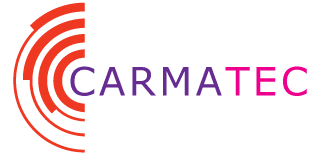A major reason for its current popularity is cross-platform app development’s own merits. As cross-platform app development tools and frameworks expanded in popularity, several cross-platform development tools and frameworks started popping up in the market; slowly at first, and then all at once as every mobile app development company tried to compete.
Thus, we now have a sea of such tools and frameworks, which may seem overwhelming to developers. We’ve included the most ideal and exemplary cross-platform frameworks in this list, including node.js, react, flutter, PhoneGap, etc.
There are certain benchmarks that must be met in order to define something as “best” in a particular domain or category.
To take a true look at how cross-platform mobile development tools and frameworks performed, several prominent aspects were considered when determining the best course of action.
First, let’s get the basics out of the way before we proceed to the list.
Cross-Platform App Development Frameworks: What Are They?
To Basically, cross-platform software is software that can run on multiple platforms, including Android, iOS, Windows, Blackberry, etc. By using this framework, apps are not required to be coded separately for each platform, but can be coded once and run efficiently across all platforms. Almost all the top mobile app development companies swear by this method in today’s app development domain.
The Features of Healthcare Applications
Cross-platform development depends entirely on the application’s requirements, system goals, and functionality requirements. Decide the app category and features before moving forward with the development approach.
There are three major types of healthcare online solutions: applications for patients, applications for doctors, and healthcare dashboards for administrators.
For an application panel of such degree, you can define a number of features. It is important to keep in mind that everything depends on your user base, and sometimes these categories can overlap. Business goals and user requirements determine the functional and feature list of any application. In addition to medical and ethical approval, these features must be approved by the government as well. Healthcare applications must comply with the government’s regulations, such as GDPR and HIPAA.
A healthcare app’s capabilities should also be considered. According to Google Play, healthcare apps are not capable of treating or diagnosing patients themselves. They play a critical role in the design of the application’s user interface and architecture.
Cross-Platform HealthCare Application development
You must’ve seen several articles on the topic of ‘Cross-Platform vs Native Application’. It is our assumption that you are already familiar with the differences between Native Applications and Cross-Platform Applications. This isn’t the time to dwell on it.
Business owners take a lot of factors into account when choosing the type of application developers will create, including:
- Specifications for design, UI/UX
- Accessibility of apps
- After launch, support capabilities of the organization
- Budget and time constraints
- Complexity of computation
- Usage of native components
While planning the development, UI/UX, etc. of a healthcare application, accessibility should be taken into account. Furthermore, the fact that this application will benefit elderly and disabled people restricts the way technology is used and how it is designed.
There are various programming highlights that should be considered when a medical care application is used by disabled individuals:
- Voice-over and voice input
- The zooming effect
- Vibrations and visual notifications
- Conferencing over video
There are several color schemes and user interface options, so programming engineers must have sufficient information about the future of the application before settling on a cross-platform or native solution. This requires a business owner to describe the application’s purpose, vision, target audience, principle features, and regular use cases. Programmers should also be aware of sensitive data security standards and specifics. Business analysts play an important role in this area since they gather information by asking the right questions.
Wrapping UP
Despite fragmentation in mobile devices, cross-platform solutions are effective in IoT Healthcare Solutions. Today, there are two major platforms on which applications are developed across the globe – Android and iOS. The process of creating Cross-Platform applications is easier for developers. In addition to providing adequate documentation and a large community, Google and Facebook tools (Ionic, React, Flutter, Xamarin, etc) are a big help. We have gathered the best developers for each of these platforms at Carmatec, a leading digital transformation company. You can count on us to help you build the cross-platform healthcare application of your dreams.













